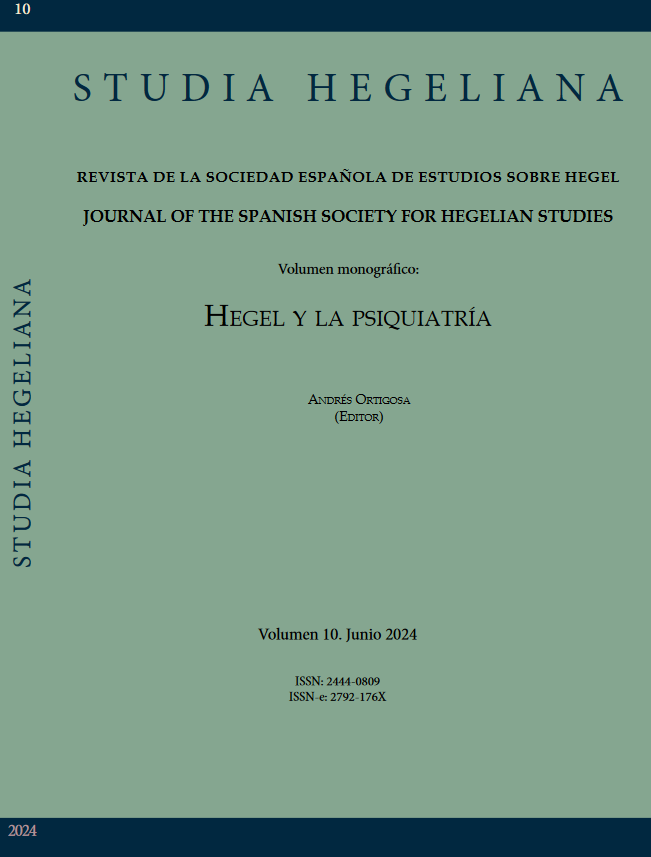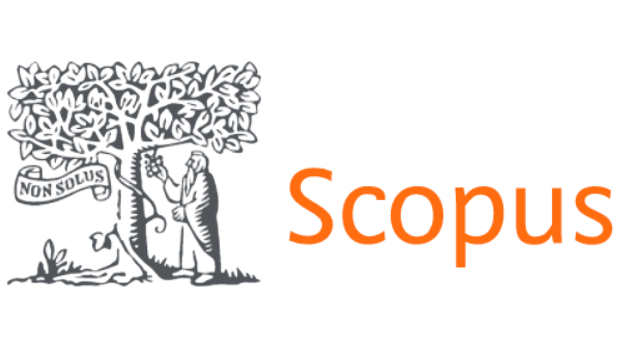Mental Illness as Irony: Hegel's Diagnosis of Novalis
DOI:
https://doi.org/10.24310/stheg.10.2024.17808Parole chiave:
Early German RomanticismAbstract
Hegel reads the poet Novalis as an expression of terminal irony, a pathological case of Gemüt, where the conscious mind is alienated from reality and turns its negativity inwards on the contents of its own natural soul. The condition of self-feeling, presented in Hegel’s “Anthropology”, is a self-consumption that manifests itself somatically in the physical disease (consumption) from which Novalis dies. The poet’s literary production represents a pathological fixation that impedes the dynamic organicity of Hegelian Science. As such, Novalis’s mental illness and death constitute an expression of romantic irony and an ongoing threat to Hegel’s philosophy.
Downloads
Metriche
##plugins.generic.pfl.publicationFactsTitle##
##plugins.generic.pfl.reviewerProfiles## N/A
##plugins.generic.pfl.authorStatements##
##plugins.generic.pfl.indexedIn##
-
##plugins.generic.pfl.indexedList##
- ##plugins.generic.pfl.academicSociety##
- N/A
- ##plugins.generic.pfl.publisher##
- Universidad de Málaga
Riferimenti bibliografici
Works by Hegel:
G. W. F. Hegel, Werke in 20 Bänden [Werke, followed by volume and page numbers], Eva Moldenhauer and Karl Markus Michel (eds.). Frankfurt am Main: Suhrkamp, 1970.
Other works:
Behler, Ernst, “Fr.Schlegel und Hegel”, Hegel-Studien, vol.2, 1963.
Hirsch, Emmanuel, “Die Beisetzung der Romantiker in Hegels Phänomenologie”, Deutsche Vierteljahrschrift für Literaturwissenschaft und Geistgeschichte, vol.2,
Norman, Judith, “Hegel and the Romantics”, in Stephen Houlgate, Hegel and the Arts. Indiana: Northwestern University Press, 2007.
Pöggeler, Otto, Hegels Kritik der Romantik. München: Wilhelm Fink Verlag, 1998 [1956].
Reid, Jeffrey, G.W. F. Hegel, L’ironie romantique : Compte rendu hégélien des écrits posthumes et correspondance de K.W.F. Solger. Paris: Vrin, 1997.
Reid, Jeffrey, “Hegel on Schleiermacher and Postmodernity”, Clio, 32,4 (Summer 2003)
Reid, Jeffrey, “How the Dreaming Soul Became the Feeling Soul, Between the 1827 and 1830 Editions of Hegel’s Philosophy of Subjective Spirit: Empirical Psychology and the Late Enlightenment”, in David S. Stern (ed.), Essays on Hegel’s Philosophy of Subjective Spirit. Albany: SUNY Press, 2013.
Reid, Jeffrey, The Anti-Romantic: Hegel Against Ironic Romanticism. London: Bloomsbury, 2014.
Reid, Jeffrey, “Hegel’s Critique of Romantic Irony” in Elizabeth Millan Brusslan and Judith Norman (eds.), Brill’s Companion to German Romantic Philosophy. Leiden: Brill, 2019.
Von der Luft, Eric, Hegel, Hinrichs and Schleiermacher on Feeling and Religion. Queenston: Mellen, 1987.
##submission.downloads##
Pubblicato
Come citare
Fascicolo
Sezione
Licenza
Copyright (c) 2024 Jeffrey Reid

Questo lavoro è fornito con la licenza Creative Commons Attribuzione - Non commerciale - Condividi allo stesso modo 4.0 Internazionale.
Esta revista provee acceso libre inmediato a su contenido bajo el principio de hacer disponible gratuitamente la investigación al público. Todos los contenidos publicados en Studia Hegeliana. Revista de la Sociedad Española de Estudios sobre Hegel, están sujetos a la licencia Creative Commons Reconocimento-NoComercia-Compartirigual 4.0 (específicamente, CC-by-nc-sa) cuyo texto completo puede consultar en <http://creativecommons.org/licenses/by-nc-sa/4.0>. Por ello, se permite la generación de obras derivadas siempre que no se haga un uso comercial. Tampoco se puede utilizar la obra original con finalidades comerciales. La revista no se hace responsable de las opiniones vertidas por lo autores de los trabajos que en ella se publican.
Es responsabilidad de los autores/as obtener los permisos necesarios de las imágenes que están sujetas a derechos de autor.
Los autores/as cuyas contribuciones sean aceptadas para su publicación en esta revista conservarán el derecho de autor. Este es no exclusivo de utilizar sus contribuciones con fines académicos, de investigación y educativos, incluyendo el auto-archivo o depósito en repositorios de acceso abierto de cualquier tipo.
Desde el volumen 7 de 2021 la revista Studia Hegeliana ha modificado el copyright. Desde ese año, los autores son los que conservan los derechos de autor.
La edición electrónica de esta revista esta editada por la Editorial de la Universidad de Málaga (UmaEditorial), siendo necesario citar la procedencia en cualquier reproducción parcial o total.







243.png)




















